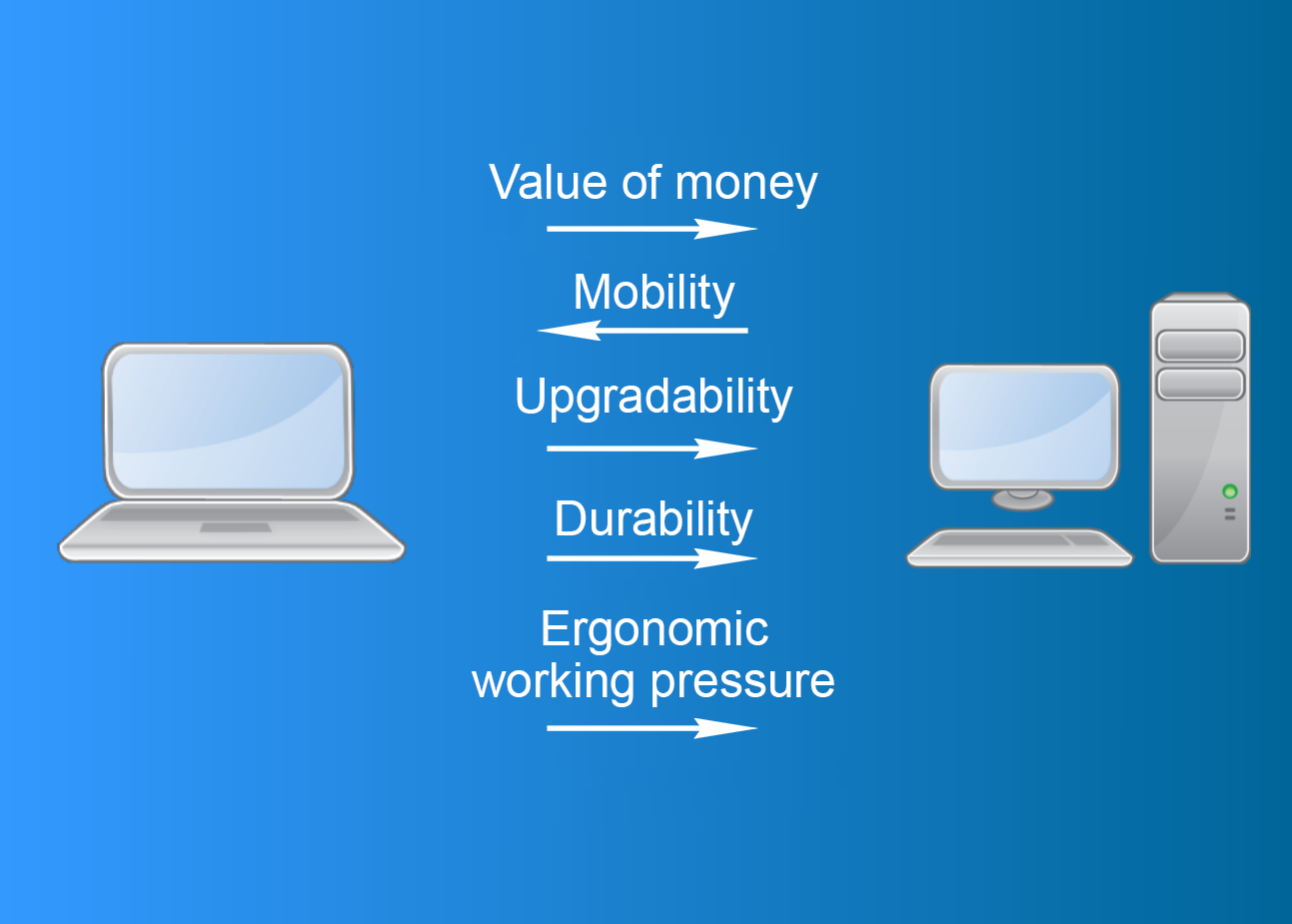Last Updated on September 18, 2021 by Amarjit Singh
When you are programming, you naturally want to purchase the right device. But which desktop or laptop is suitable for programming?
In most programming languages such as Java, C++, Python, C#, the following elements are important: the processor, the RAM, the operating system, and the storage.
And here, most of the developers got confused on a single question, i.e., whether to choose a laptop or desktop for programming.
Do you want to start programming (Programming/coding) as a developer and do you need a good device for that? Then it is a must to pay attention to a number of specifications when purchasing your new device.
What are the factors that affect your choice?

1. Screen size
As a developer, you often work with different codes and programs at the same time. Many developers like to have multiple programs open on their system, which works easier and faster.
Of course, you need a certain screen size for that. It becomes more difficult to work on a small screen if you have multiple programs open.
We recommend a screen size of at least 15.6 inches, but of course, this also has to do with your personal preference. Maybe you travel a lot and a smaller screen laptop is, therefore, more convenient and compact.
2. Screen resolution
A high screen resolution is better for developers. As a developer, you spend a lot of time looking at your screen. If the screen resolution is too low, your eyes may get tired.
The additional benefit is that with a higher screen resolution, more fits on your screen. As a result, for example, more lines of code fit on your screen and you may be able to understand large pieces of code faster.
3. Processor
The processor is naturally the heart of your device and performs calculations and controls. The better the processor is, the faster it performs its tasks. This will also make your system faster.
As a developer, you naturally want to be able to work quickly with multiple heavy programs and that requires a good multi-core processor. Also, code must be compiled quickly. A modern multi-core processor can (faster) work on multiple tasks at the same time.
4. Working memory (RAM)
You also need a lot of RAM to run codes and programs. The processor temporarily stores data in the working memory and there must be enough space for this.
It is recommended for a developer to take at least 8 GB of RAM. This is usually enough to run heavy programs at a faster speed.
5. Type of storage
There are two kinds of hard drives that contain storage space namely HDD and SSD. An SSD is four times faster and quieter than an HDD, which is why we recommend an SSD.
With an SSD, your device boots up in no time, and programs and other tasks are loaded very quickly.
Advantages and disadvantages desktop and laptop
| Desktop | Laptop | |
| Mobility | A desktop computer is used in a fixed place and can therefore not be used everywhere. | A laptop can be used anytime and anywhere so you can program anywhere. |
| Value of money | The average price of a desktop is lower than that of a laptop with comparable specifications. This price often does not include a monitor, a mouse, and a keyboard. | The price of a laptop is higher than that of an equivalent desktop computer. A laptop, on the other hand, is an all-in-1 solution, because with a purchase you are simultaneously provided with a monitor, a keyboard, and an integrated mousepad. |
| Upgrade options | It’s easier and often cheaper to upgrade a desktop than a laptop. Think, for example, of adding a better video card, more memory, a faster hard drive, or an SSD to improve your programming. | The upgrade options of a laptop are often more limited than with a desktop computer. However, there is often more possible than is thought. |
| Low chance of malfunctions | A desktop is in a fixed place. The advantage of this is that the PC is less susceptible to wear and tear and defects. Moreover, a desktop does not depend on a battery and the associated limited lifespan. | In most cases, a laptop is moved regularly, with the result that a laptop has a greater chance of wear and defects. In addition, a laptop is equipped with a battery, which has a limited lifespan. |
| Ergonomic working pressure | An important advantage of desktops over laptops for programming is that the work posture is often considerably better. You can determine the distance to the screen, the size of the keyboard, and the position of the mouse. In addition, you often automatically take a more active position behind a PC. | The fact that a laptop is very mobile also has a downside. With a laptop, you quickly work in a non-ergonomic position (on the couch, on the train, etc.). In addition, the size of the keyboard, the distance to the screen, and the position of the touchpad are fixed. |
Conclusion
A laptop is possibly the best option in case of portability, where you want to take the code wherever you go without any hassle. However, if you think of the price point, a desktop would be an inexpensive option and can be used for longer.
